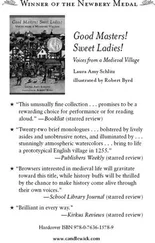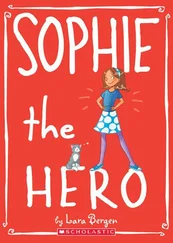Laura Schlitz - The Hero Schliemann
Здесь есть возможность читать онлайн «Laura Schlitz - The Hero Schliemann» весь текст электронной книги совершенно бесплатно (целиком полную версию без сокращений). В некоторых случаях можно слушать аудио, скачать через торрент в формате fb2 и присутствует краткое содержание. Год выпуска: 2006, ISBN: 2006, Издательство: Candlewick Press, Жанр: Старинная литература, на английском языке. Описание произведения, (предисловие) а так же отзывы посетителей доступны на портале библиотеки ЛибКат.
- Название:The Hero Schliemann
- Автор:
- Издательство:Candlewick Press
- Жанр:
- Год:2006
- ISBN:978-0-7636-6567-8
- Рейтинг книги:5 / 5. Голосов: 1
-
Избранное:Добавить в избранное
- Отзывы:
-
Ваша оценка:
- 100
- 1
- 2
- 3
- 4
- 5
The Hero Schliemann: краткое содержание, описание и аннотация
Предлагаем к чтению аннотацию, описание, краткое содержание или предисловие (зависит от того, что написал сам автор книги «The Hero Schliemann»). Если вы не нашли необходимую информацию о книге — напишите в комментариях, мы постараемся отыскать её.
The Hero Schliemann — читать онлайн бесплатно полную книгу (весь текст) целиком
Ниже представлен текст книги, разбитый по страницам. Система сохранения места последней прочитанной страницы, позволяет с удобством читать онлайн бесплатно книгу «The Hero Schliemann», без необходимости каждый раз заново искать на чём Вы остановились. Поставьте закладку, и сможете в любой момент перейти на страницу, на которой закончили чтение.
Интервал:
Закладка:
Nevertheless, Heinrich had made two of the greatest discoveries in archaeological history. He traveled widely during the next year, relishing his newfound fame. But even as he boasted, he was nagged by doubt. In studying the Mycenaean tombs, Heinrich formed a clearer idea of what Bronze Age artifacts looked like. Unfortunately, what they didn’t look like were the artifacts he had found at Hissarlik. If Hissarlik and Mycenae were both remnants of Homer’s heroic world, why were the sites so different from each other? Why weren’t the treasures more alike?
In 1878, Sophia gave birth to a little boy, and Heinrich returned home for the christening. Heinrich had planned to call his son Odysseus, but changed his mind after his triumph at Mycenae. The infant was christened Agamemnon. Heinrich laid a book against the baby’s head and read his newborn son a hundred lines of Homeric verse.
Shortly after his son’s birth, Heinrich decided to return to Hissarlik. He wanted to re-examine the site. He was eager to find artifacts that would confirm his “Troy” as a Bronze Age city.
He applied to the Turkish government for a firman and, surprisingly, got it. He was even allowed to keep one third of whatever he found. During the 1879 excavations at Hissarlik, Heinrich was accompanied by a scholar and doctor named Rudolf Virchow.
Rudolf Virchow and Heinrich had a lot in common. Both loved Homer. The two men came from working-class backgrounds and were almost exactly the same age. Virchow’s powers of energy and concentration were the equal of Heinrich’s — and he shared Heinrich’s fascination with human bones. In disposition, however, they were different: Heinrich was hotheaded, touchy, and dreamy; Virchow was thoughtful and self-contained.
Rudolf Virchow became a sort of father figure to Heinrich. He encouraged Heinrich to observe the land around Hissarlik, to take note of animal and plant life. He taught him to keep more accurate records and to think twice before jumping to conclusions. Virchow even advised Heinrich about personal matters. He reminded him to pay attention to Sophia and gave suggestions about what to feed the infant Agamemnon. Heinrich, who was not good at listening to other people, paid attention to Dr. Virchow — except when his new friend warned him against the dangers of bathing in icy water. Heinrich suffered from chronic earaches; Virchow told him, correctly, that his sea bathing would make the earaches worse. Heinrich ignored him.
Together Virchow and Schliemann tackled the mound at Hissarlik. More precious objects were found — Heinrich was almost getting used to finding treasure — but none of the objects resembled what he had found at Mycenae. Heinrich decided to explore other Bronze Age sites. He was driven by two hungers — to learn more and to prove that his earlier theories were right.
He excavated at Orchomenus, another of the cities that Homer had described as “rich in gold.” At Orchomenus, it was Sophia’s turn to make a major discovery. She found a treasury room belonging to a legendary king, covered with intricate carvings of flowers and spirals. The chamber was so beautiful that the Schliemanns paid to have it restored.
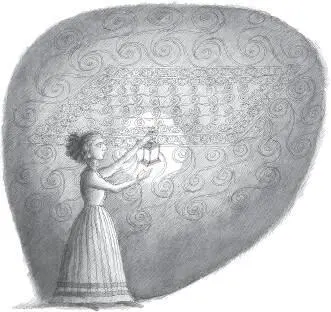
At Orchomenus, Heinrich first hired Wilhelm Dörpfeld, whom later archaeologists were to call “Schliemann’s greatest discovery.” Dörpfeld was twenty-seven years old. He had been trained as an architect, and he had a genius for looking at ancient ruins and envisioning how they appeared long ago. Like Virchow, Dörpfeld was a good influence on Heinrich. He taught him how to excavate with care. Though he understood the science of archaeology far better than Heinrich did, Dörpfeld loved and admired the older man.
With Wilhelm Dörpfeld at his side, Heinrich set off for Tiryns, a city linked in myth with Hercules and the “warlike Diomedes” of The Iliad . Tiryns was Heinrich’s third great triumph. With the help of Dörpfeld, he uncovered a majestic palace, decorated with wall paintings of Bronze Age men and women. The site yielded vast amounts of jewelry and pottery. In both size and decoration, it was the sort of palace that Heinrich had hoped to find at Hissarlik.
Heinrich was moving into his own palace around this time. He persuaded a famous architect to create a house that would celebrate Homer’s heroic poetry. The “Palace of Troy” was a fantasy world, richly adorned with statues, murals, and Homeric inscriptions, “but it contained not one stick of comfortable furniture,” complained his daughter Andromache.
The lack of comfort didn’t bother Heinrich. Even in his sixties, he preferred to read and write standing up. Sophia and the children were forced to make the best of living in a museum. When Heinrich went away on business, they packed a picnic basket and spread out their picnic on one of the hard mosaic floors.
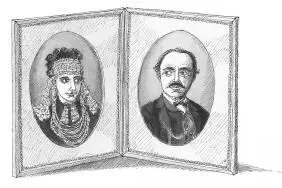
Heinrich ruled over his Homeric palace like a king. He gave the servants names out of Homer and Greek mythology. He kept hens and pigeons and forbade anyone to kill them for food. No one was allowed to pluck the flowers in the garden — Heinrich had an odd theory that plants suffered when they were picked. Besides the birds, Heinrich doted on the family dog and a kitten he had rescued from Hissarlik.
During the last decade of his life, Heinrich received many visitors at his “Palace of Troy.” He had grown more comfortable with people and entertained guests with kindness and generosity. He was an affectionate but demanding father, insisting that his children study hard, exercise vigorously, and speak foreign languages. His daughter Andromache wrote, “Throughout my own girlhood he would often get me up at five o’clock in the morning in winter to ride horseback five miles . . . to swim in the sea, as he himself did every day. . . . Beneath these imperious traits Father was warmhearted and generous to a fault. He was humble, too, in his own way.”
Humble? Perhaps not. When Heinrich wrote about his finds at Tiryns, he stated, “Once again the gods granted me . . . one of the most important archaeological discoveries ever made . . . from now till the end of time.” Conceited though this sounds, there is truth in it. Though the palace of Tiryns is the least famous of Heinrich’s three great triumphs, excavating it was a stupendous achievement. Once again, Heinrich crowed with triumph before the public, and the public responded with a mixture of catcalls and cheers.
Wilhelm Dörpfeld, who was responsible for the superb quality of the excavation work, stood in the wings, allowing Heinrich the limelight. Perhaps he understood that his time would come, that the older man would soon withdraw from the world of archaeology.
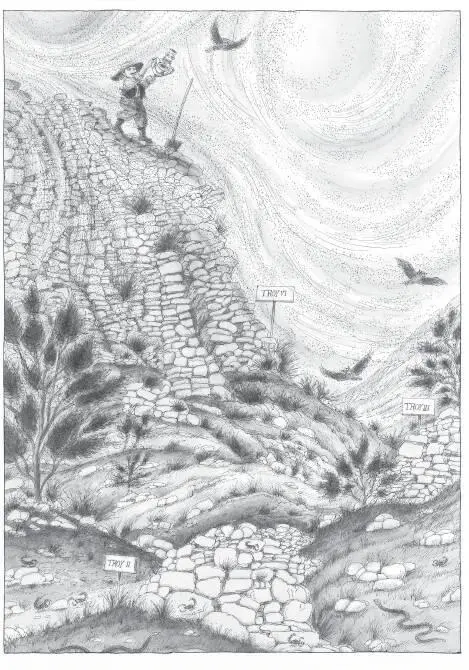

During the last ten years of his life, Heinrich was often tired and sick. His earaches tortured him, and he suffered from malaria. In spite of his illness, he continued to travel, to swim, to write, and to dig.
In 1890, he returned once more to Hissarlik. It was his twelfth visit, and little had changed: it was still a place of owls and scorpions, poisonous snakes, wind and dust. On this particular visit, Heinrich did rather a mysterious thing: he began to excavate outside the walls of “his” Homeric Troy.
It may have been Dörpfeld’s idea. Or it may have been Heinrich’s — he had always been haunted by the fact that his prehistoric city was so small. In any event, once the two men dug outside the boundaries of what Heinrich had claimed was Troy, they came upon two buildings similar to the Bronze Age palace at Tiryns. Inside, at last, they found what Heinrich had been looking for: pottery similar to that he had found at Mycenae. As if that were not enough, there was one last treasure — four stone axes of polished green jade and lapis lazuli. “I saw Pallas Athena in front of me,” wrote Heinrich, “holding in her hands those treasures which are more valuable than all those I uncovered at Mycenae. . . . I cried for joy, fondled and kissed her feet. I thanked her from the bottom of my heart.” He was later to smuggle the axes out of the country. He was not to be reformed.
Читать дальшеИнтервал:
Закладка:
Похожие книги на «The Hero Schliemann»
Представляем Вашему вниманию похожие книги на «The Hero Schliemann» списком для выбора. Мы отобрали схожую по названию и смыслу литературу в надежде предоставить читателям больше вариантов отыскать новые, интересные, ещё непрочитанные произведения.
Обсуждение, отзывы о книге «The Hero Schliemann» и просто собственные мнения читателей. Оставьте ваши комментарии, напишите, что Вы думаете о произведении, его смысле или главных героях. Укажите что конкретно понравилось, а что нет, и почему Вы так считаете.

